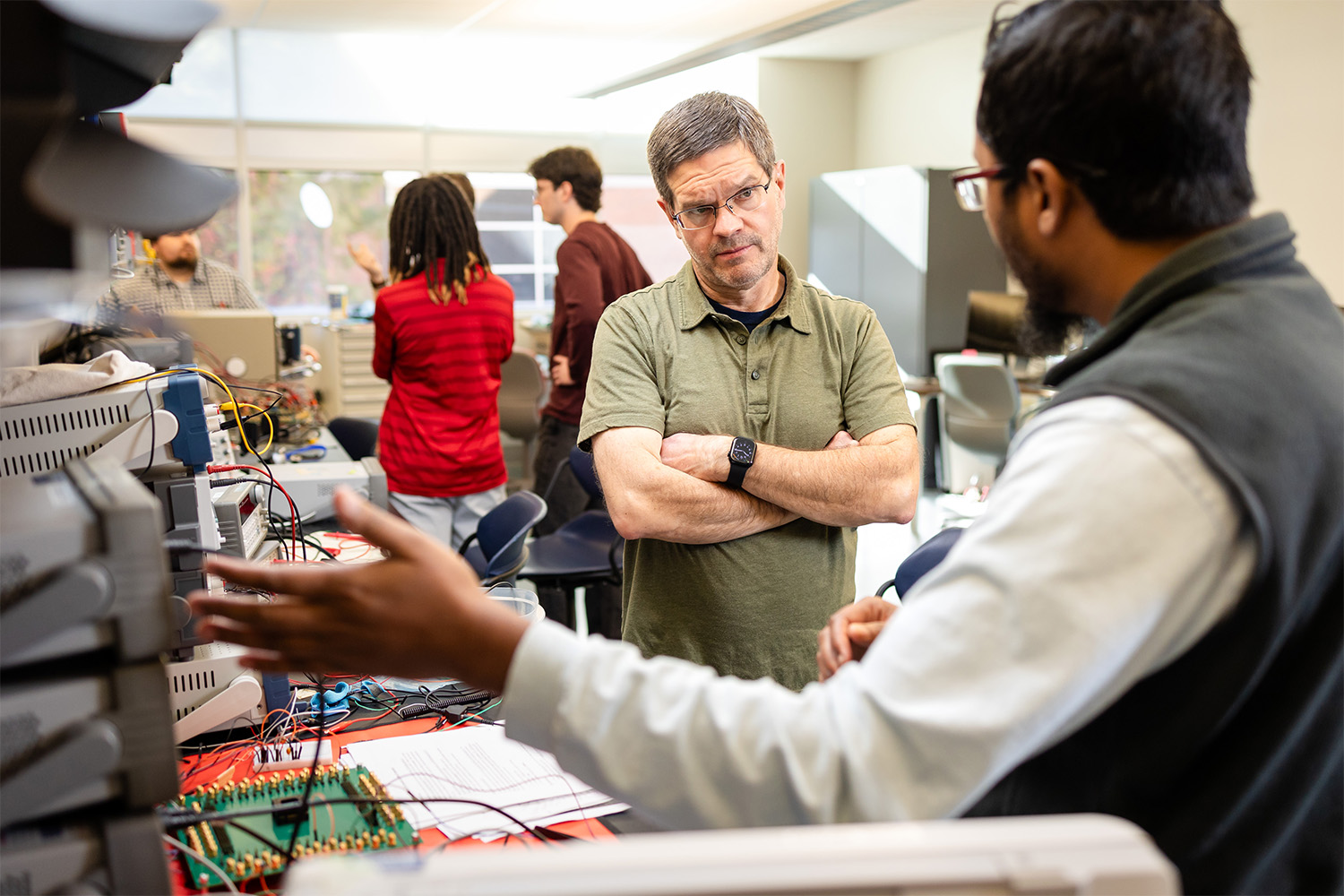
Blalock’s Chips Blend Old, New Tech
To create and simulate computer chips that can survive on Europa, EECS professor Ben Blalock’s team has integrated new materials, old tech, and some original innovations. To operate on the surface of Mars, Blalock and his team had to engineer chips that could operate well from -140 to 40 degrees Celsius (-220 to 104 Fahrenheit) and under a daily bombardment of 70 radiation units (rads)—500 times the amount of radiation hitting Earth each day. To create chips that can handle the unique operational challenges of the distant moon, Blalock’s team has integrated new materials with an old design philosophy and a groundbreaking software strategy.
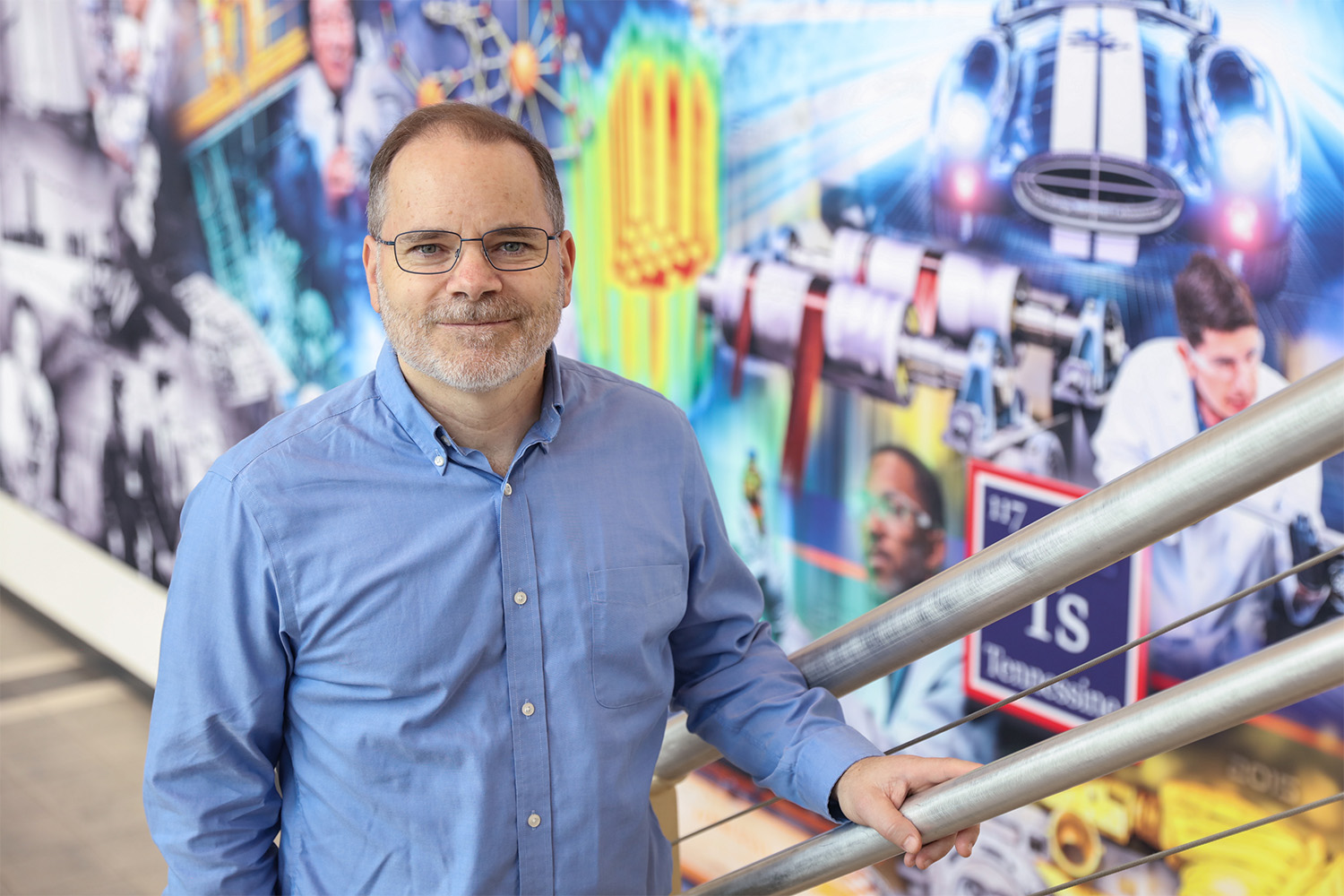
NAE Member Sholl Brings Expert Experience to CBE
After serving as the interim leader for nine months, David Sholl was named the executive director of the University of Tennessee-Oak Ridge Innovation Institute and vice provost of UT. Sholl also holds an appointment as join faculty professor in the Department of Chemical and Biomolecular Engineering. Sholl came to Tennessee from Georgia Tech, where he was the school chair of chemical & biomolecular engineering from 2013-2021. The Australian is a Fellow of the American Institute of Chemical Engineering (AIChE) and the American Association for the Advancement of Science (AAAS) and was elected to the National Academy of Engineering in 2024. Under Sholl’s leadership over the past nine months, UT-ORII has added two new $20-million UT-ORNL convergent research initiatives and expedited plans to recruit more than 100 new UT and ORNL joint research faculty and 500 research graduate students by 2030, two years ahead of schedule. Sholl obtained his bachelor’s degree in theoretical physics from The Australian National University and his master’s and PhD in applied mathematics from the University of Colorado.
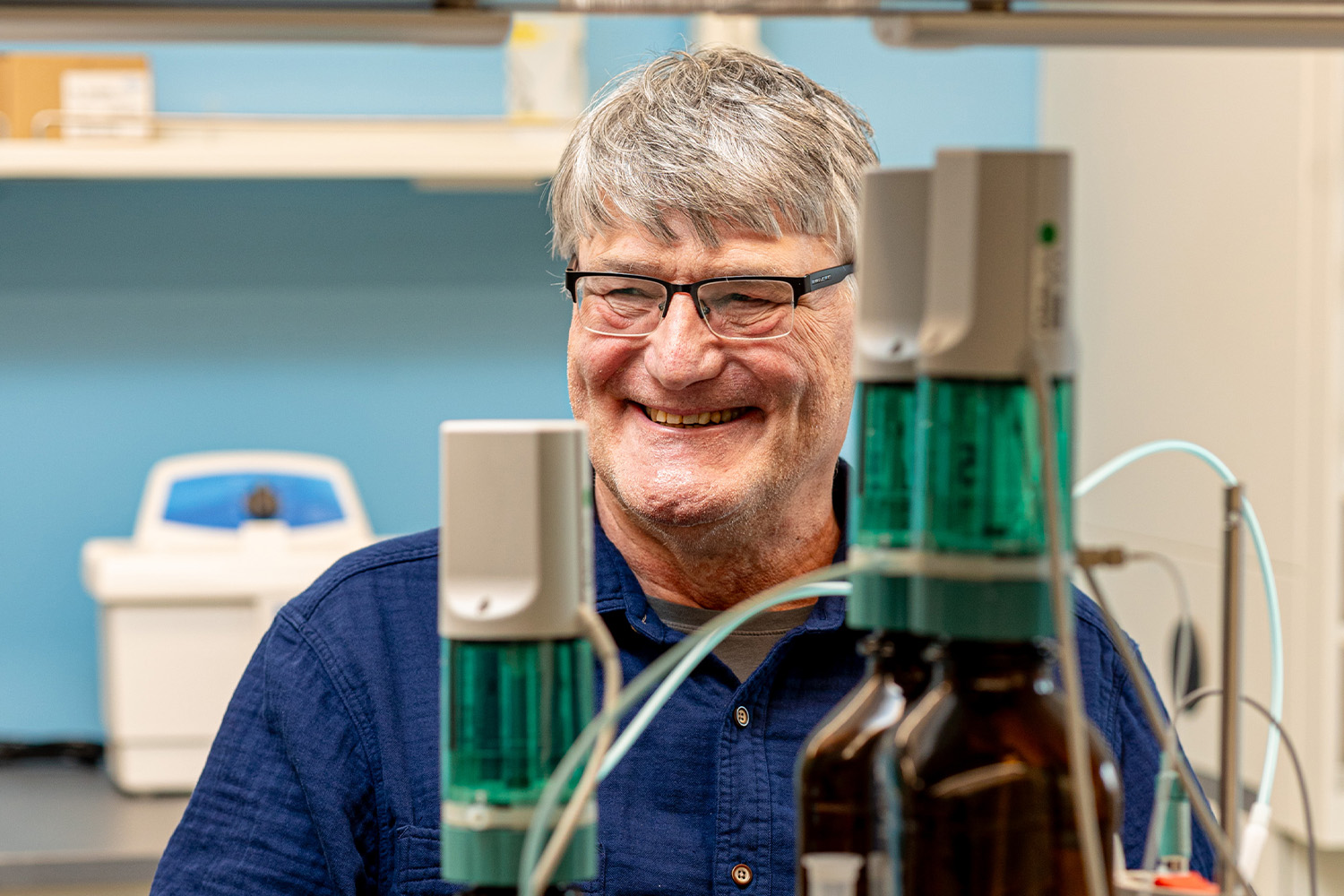
TCE Team Helps Nissan Find ‘Second Life’ for EV Batteries
An engineering team from the University of Tennessee has been tasked with helping Nissan find a “second life” for its LEAF model electric vehicle batteries by turning them into power supplies at Nissan America’s Headquarters in Franklin, Tennessee. The Battery Energy Storage Solution (BESS) project also includes UT Oak Ridge Innovation Institute (UT-ORII), Middle Tennessee Electric, and 7 States Power Corp. The collaborative effort across UT’s engineering departments is being led by UT-ORNL Governor’s Chair for Electrical Energy Conversion and Storage Tom Zawodzinski. He is joined on the team by Min H. Kao Department of Electrical Engineering and Computer Science Chancellor’s Professor Leon Tolbert; Material Science and Engineering Assistant Professor Katharine Page; and Peng Zhao, associate professor in mechanical, aerospace, and biomedical engineering at the UT Space Institute. The UT team received funding through UT-ORII’s Science Alliance’s Program for Advancing Collaborative Teams (PACT) program, which has enabled each member to hire a graduate student to assist with the work.

TCE Introduces IP Law Graduate Certificate
The college introduced a new graduate certificate program this fall that blends technical and legal knowledge. The engineering intellectual property law graduate certificate program is designed to bridge the gap between the intricate domains of engineering and law, empowering engineering professionals with the legal expertise required to protect their inventions, designs, and innovations while also providing them with the needed foundation for IP protection-related jobs. The 12 credit-hour program will be offered online, consisting of three required courses (nine credit hours) and one elective course (three credit hours). Some key areas to be covered in the program include patents, copyrights, trademarks, trade secrets, and contracting, which will provide students with an understanding of the legal framework surrounding these rights and strategies to apply them to engineering and technology fields.
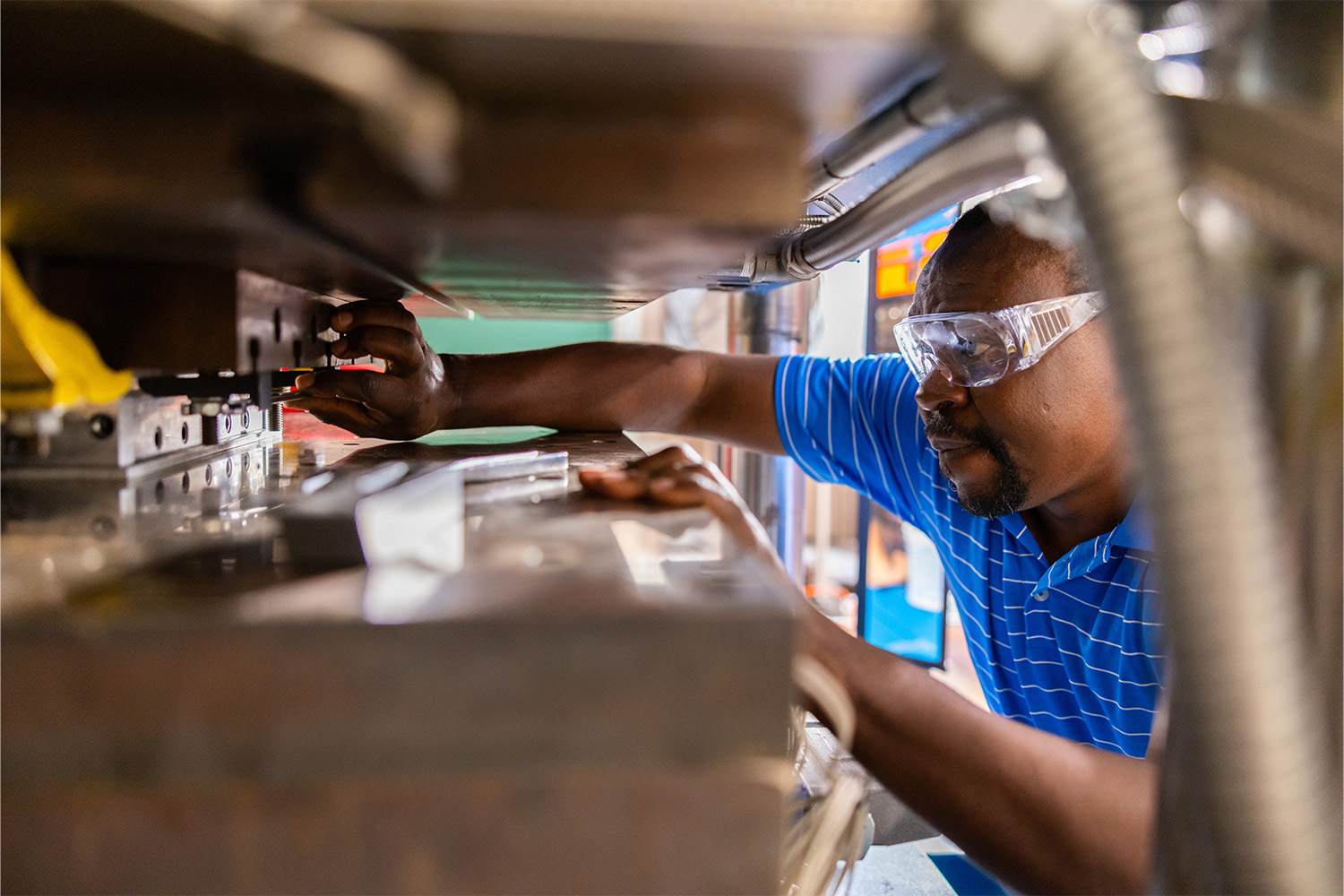
Innovation South Facility Opens in UT Research Park
The University of Tennessee, Knoxville’s Fibers and Composites Manufacturing Facility has a new home and IACMI – The Composites Institute has new headquarters with the dedication of Innovation South. Innovation South is an 85,000-square-foot multiuse facility in UT’s Research Park at Cherokee Farm, UT-ORNL Governor’s Chair for Advanced Composites Manufacturing Uday Vaidya, who will be a main tenant of the facility, was key in the execution of the vision for Innovation South. Developed and owned by Partners Development, the building includes a 40,000-square-foot high bay and laboratory space for UT faculty, students and industry collaborators to conceptualize, prototype and test sustainable composite materials for advanced manufacturing, including precision agriculture, architecture, and automotive applications. IACMI, a 140-member-plus consortium of companies, will locate its headquarters at Innovation South, offering unique opportunities for collaboration to create commercial solutions in the advanced manufacturing of composites. Innovation South also includes spaces for workforce training for K-12 students, community and technical college students, university students, and workers looking to advance their skills in their fields. In addition to training on industry-relevant equipment, Tennessee’s current and future workforce gains experiential learning in areas of critical need to U.S. competitiveness.
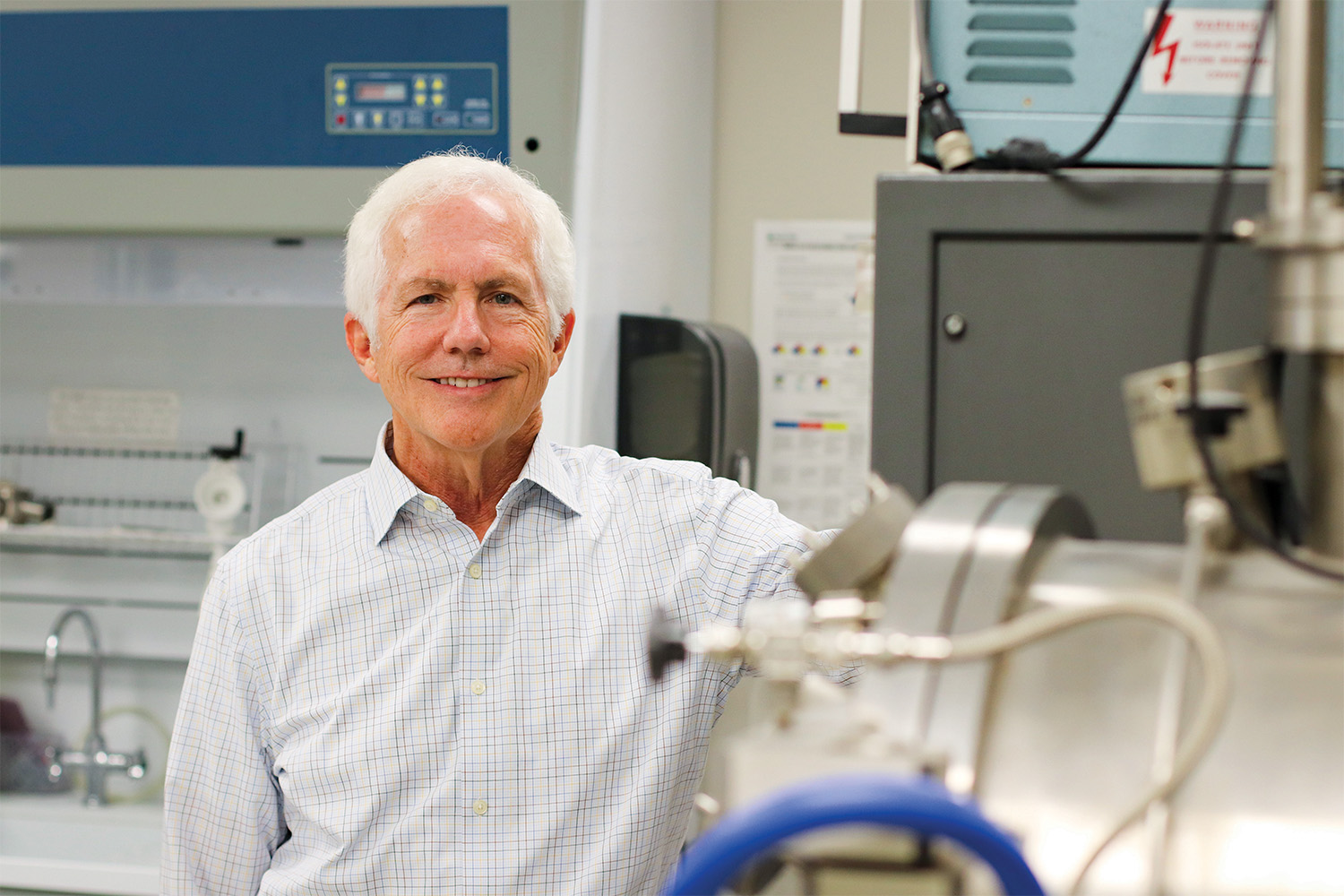
Melcher Receives 2025 IEEE Marie Sklodowska-Curie Award
MSE Research Professor Chuck Melcher first published research characterizing a new scintillating crystal known as LSO thirty-two years ago. Today, LSO is the top scintillator used in positron-emission tomography (PET), a medical tool used to diagnose patients with brain or heart conditions and metabolic disorders like cancer. In recognition of the scintillator’s discovery, development, and lasting impact on PET technology, the Institute of Electrical and Electronics Engineers (IEEE) will honor Melcher with the 2025 Marie Sklodowska-Curie Award.